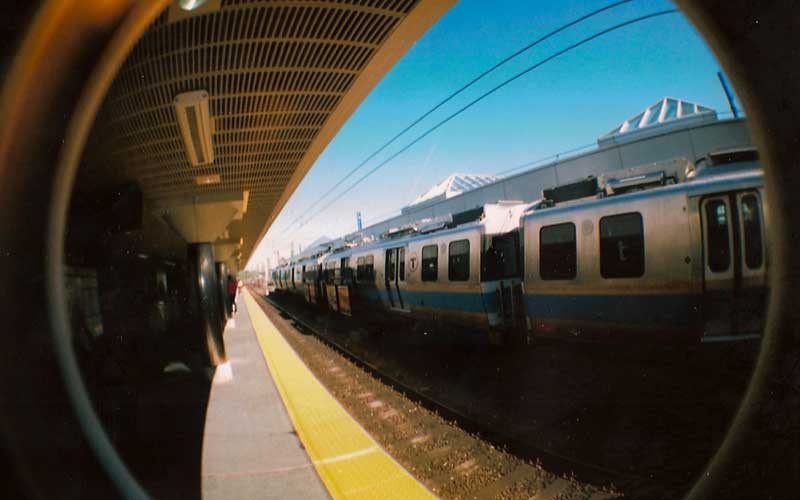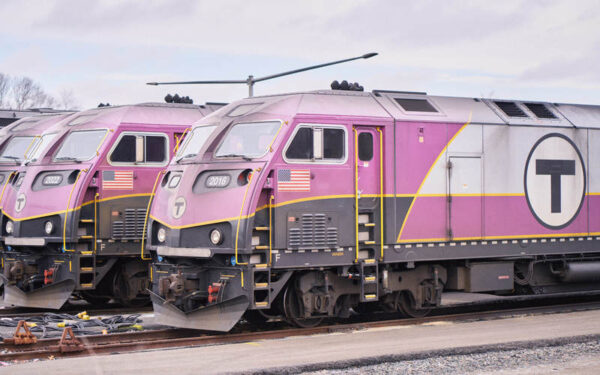
The MBTA claims it will have a deficit in its 2019 budget, but the financial picture it's painting is skewed at best. Photo: Lauren Siegert via CC 2.0
The MBTA is crying wolf… again, predicting a deficit of $111 million in its next fiscal budget.
The potential solution? Raise fares on riders, again.
Governor Baker seems to agree, stating on Valentine’s Day that the MBTA should be discussing a fare increase. I’m not sure that was the best way to spread the love, especially to riders who are still dealing with daily delays, overcrowded trains, and waits in below-freezing temperatures for service that never arrives. Perhaps riders would be more sympathetic if Governor Baker ever used the MBTA himself for his daily commute from Swampscott, as the Boston Globe’s Joan Vennochi points out in her most recent column, where she criticized the Governor for speaking about a fare hike while never setting foot on public transportation.
Seeing is Believing: The T’s Budget Tells a Different Tale than the Governor
We’ve heard this tale of a budget crisis before. The governor and the MBTA used it to justify raising fares by nine percent barely two years ago. But here’s the true story of the T’s finances: there is no budget crisis, no deficit. Yes, it’s all make-believe.
How, you ask? It’s simple. The MBTA relies on three broad categories of revenue to cover its operating expenses: 1) the state sales tax; 2) income from fares, parking fee, advertising, and real estate transactions; and 3) an additional annual state appropriation of $187 million as a result of the Transportation Finance Act of 2013.
If you count all three buckets of revenue, then the T’s 2019 budget will actually reflect a surplus, meaning there’s no need even to consider raising fares on riders. But that’s not what the T is doing. They are only counting revenue from the first two buckets and leaving out the state appropriation altogether. By that arbitrary math, the MBTA claims, the system faces a $111 million “structural deficit” for its next fiscal year.
This is like the Red Sox stating they have a deficit if ticket prices alone don’t cover the full expenses of the organization. “What about the television, advertising, and sponsorship revenue?” any good sports fan would retort.
The T’s So-called Deficit is “Constructed,” Not “Structural”
The MBTA has been talking about a structural deficit since 2015, with “structural” being a code word for “constructed.” Last year, Rep. William Straus, the House chair of the state legislature’s Transportation Committee said that the $187 million are a safe source of revenue, that the T doesn’t face a structural deficit, and that the phrase is loaded because it conjures up an image of some sort of budgetary crisis. We couldn’t agree with him more.
Governor Baker says he wants to put aside most of the $187 million for capital projects rather than for the daily operational expenses of making the MBTA run more smoothly and reliably. His 2019 budget and MassDOT plans allocate $150 million of the state monies to the T’s capital budget. But, as I’ve said before, the MBTA doesn’t actually spend enough on capital projects to merit such reallocation – especially when the alternative is to reach into the wallets of riders for higher fares yet again. Even if the MBTA ends up using that $150 million for capital projects, which would be great, it still leaves $37 million leftover – but that isn’t being counted toward balancing the MBTA’s 2019 budget, either.
Governor Baker Turned Down State Funds to Offset the Deficit
To make matters worse, the Legislature actually has offered funding beyond the $187 million through the Transportation Finance Act of 2013, but the Governor turned it down, stating that the T doesn’t need it.
So, let’s try to get this straight:
- Service on the T is as unreliable as it’s ever been and ridership is already dropping due to the subsidized competition from ride-share companies.
- Despite this, the MBTA and Governor Baker claim they may have no choice but to raise fares (again) to offset a made-up $111 million deficit in Fiscal Year 2019.
- Since 2013 the legislature has offered additional funding that would make fare increases unnecessary and provide more resources for capital investments.
- The Governor has diverted or turned down those state funds.
If you’re scratching your head right now, you’re not alone.
The T is a public service that benefits not just its riders, but the entire state by helping to drive the economy of the Greater Boston area and beyond. It keeps our roads from being even more clogged than they already are, and it’s the only affordable form of transportation for many of us. Suggesting a fare hike is needed when other revenue is available is irresponsible, inequitable, and somewhat dishonest.
A fare hike is just talk right now, but when it has the weight of Governor Baker’s support behind it, we need to take it seriously. Because, even if this so-called “structural” deficit is just another case of the MBTA crying wolf, fare increases would be very real and sting like a cold gust of air while you shiver on the platform for a train that never arrives.



